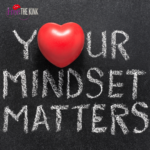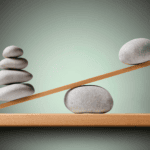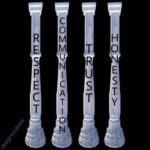Self-introspection is the process of taking a step back and reflecting on our thoughts, feelings, and behaviors. It’s an important part of personal growth because it allows us to identify areas where we can improve upon ourselves. Self-reflection helps us gain insight into who we are as individuals and how we interact with the world around us. By understanding our strengths and weaknesses, we can make better decisions in life that lead to greater success and happiness. In this article, we’ll look at why self-introspection is so essential for personal development, different ways you can practice it, and tips to help you get the most out of your reflections. With a little bit of effort and dedication, you can learn a lot about yourself through self-introspection.
Self-introspection is rooted in the notion that knowledge of ourselves is the key to understanding our place in the world. It encourages us to take time for introspection, or “soul-searching”, in order to gain insight into our true selves. By understanding ourselves at a deeper level, we can better identify and work on areas of improvement that will help us become more successful and content in all aspects of life.
There are many different methods you can practice when it comes to self-introspection. The most common way is journaling, which can be done in a notebook, on your computer, or even through an app. Journaling allows us to document our thoughts and reflect upon them over time. Other methods include talking to a trusted friend or mentor about your experiences and exploring different types of meditation or mindfulness exercises.
Here are just a few techniques you can use;
Keep a Journal
One of the best ways to practice self-introspection is to keep a journal. Writing down your thoughts and feelings on a regular basis can help you to better understand your innermost thoughts and emotions. Additionally, journaling can also help you to track your progress over time and see how your thoughts and feelings have changed.
Talk to a Therapist
If you are struggling to introspect on your own, talking to a therapist can be a helpful option. Therapists are trained professionals who can help you to explore your thoughts and feelings in a safe and supportive environment. Therapists can also provide you with tools and resources for practicing self-introspection on your own.
Take Some Time for Yourself
In today’s busy world, it can be difficult to find time for yourself. However, taking some time each day to focus on your own needs is essential for practicing self-introspection. Whether it’s taking a few minutes each day to meditate or spending an hour each week reading or doing another activity that you enjoy, carving out some time for yourself will allow you to focus on introspection.
Be Honest with Yourself
When introspecting, it is important to be honest with yourself. This means being open to exploring both the positive and negative aspects of your thoughts and feelings. Trying to repress or ignore certain thoughts or emotions will only prevent you from gaining insight into them.
Practice Mindfulness
Mindfulness is a technique that can be used for self-introspection as well as for managing stress and anxiety. Mindfulness involves paying attention to the present moment without judgment. When practicing mindfulness, you should focus on your breath and pay attention to any thoughts or emotions that arise without trying to change them.
Try Different Methods
There is no one “right” way to practice self-introspection. What works for one person may not work for another. It’s important to experiment with different methods until you find ones that work well for you. Some people find journaling helpful, while others prefer talking to a therapist or practicing mindfulness.
Be Patient
Self-introspection takes time and patience. Don’t expect to gain insight into all of your thoughts and emotions overnight. It may take weeks, months, or even years of introspection before you feel like you have a good understanding of yourself. Be patient with yourself and trust that the process will eventually lead you to greater self-awareness.
Seek Professional Help If Needed
If you are struggling with mental health issues such as depression, anxiety, or trauma, introspection may not be enough to help you heal on your own. In these cases, it’s important to seek professional help from a therapist or other mental health professional who can provide you with the treatment and support you need
Take some time to find the approach that works best for you. Once you’ve identified the method that resonates with you most, make sure to set aside some time each day or week to engage in self-introspection. It doesn’t have to be a long process; just 10 minutes of journaling or 5 minutes of meditation can do wonders for your self-reflection.
Finally, remember that self-introspection isn’t just about focusing on the negatives. It’s also an opportunity to celebrate your successes and be mindful of the positive aspects of yourself. Make sure to recognize the things you are doing well in life and set goals based on those achievements. This will help you stay motivated and determined to improve upon yourself.
Personal Growth Starts Within

Previous Post
The Art of the Pinch
Next Post
What is a Bullwhip?














